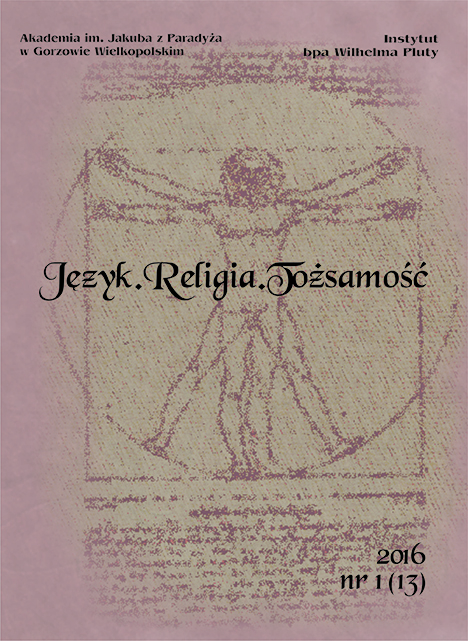Wyższe figury i proletariat urzędowy, czyli językowa kreacja środowiska urzędniczego w powieści Krewni Józefa Korzeniowskiego
Prominent figures and official proletariat i.e. language creation of clerical environment in Józef Korzeniowski’s novel Kinsmen
Author(s): Jowita Żurawska-ChaszczewskaSubject(s): Semantics, Polish Literature, 19th Century
Published by: Akademia im. Jakuba z Paradyża
Keywords: linguistics; writers' language; semantics; stylistics;
Summary/Abstract: The analysis of the nineteenth century Józef Korzeniowski's novel Kinsmen shows the varied world of Warsaw clerks in which the young combated poverty and the rich got promoted quickly. The administration which was being created that time in Warsaw, which was annexed by Russia, opened itself for the becoming impoverished nobility who was looking for its place, still respected aristocracy and bourgeoisie. Creating Warsaw clerical environment Józef Korzeniowski reaches for the vocabulary mainly connected with career and work in administration, as well as for general vocabulary connected with administration, names of professions and functions, names of titles, names of clerk's family members connected with the function he performed, names of forms of employment, names of workplaces and offices, names of office furniture, names of pay, names of certificates necessary to get a job, names of office tools and materials but also – by situating clerks in created by himself novel illusion of reality – he describes it through the vocabulary connected with the realities of the nineteenth century, such as names of clothing, objects or trade vocabulary. Józef Korzeniowski valorizes clerk's work which is reflected in epithets of positive connotations. In his language creation of the clerical world he does not avoid metaphors as well as humorous modifiers and phraseological expressions. They are supplemented with pejorative expressions.
Journal: Język. Religia. Tożsamość
- Issue Year: 5/2011
- Issue No: 1
- Page Range: 293-308
- Page Count: 16
- Language: Polish

